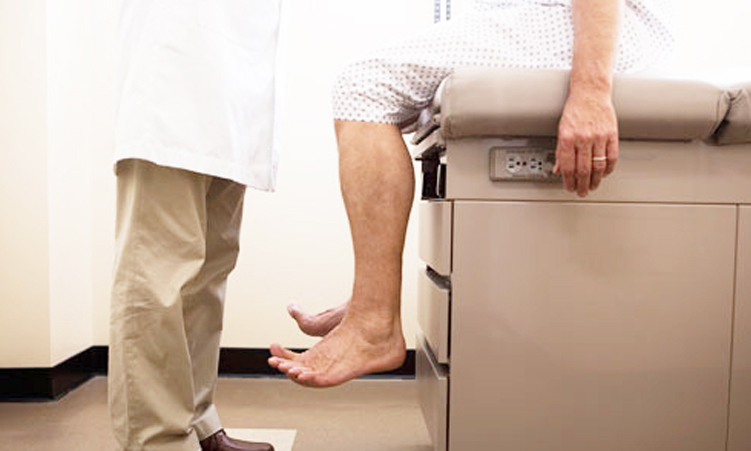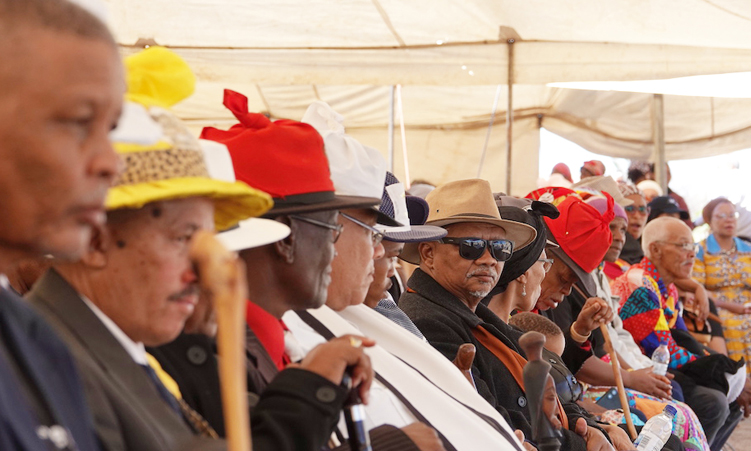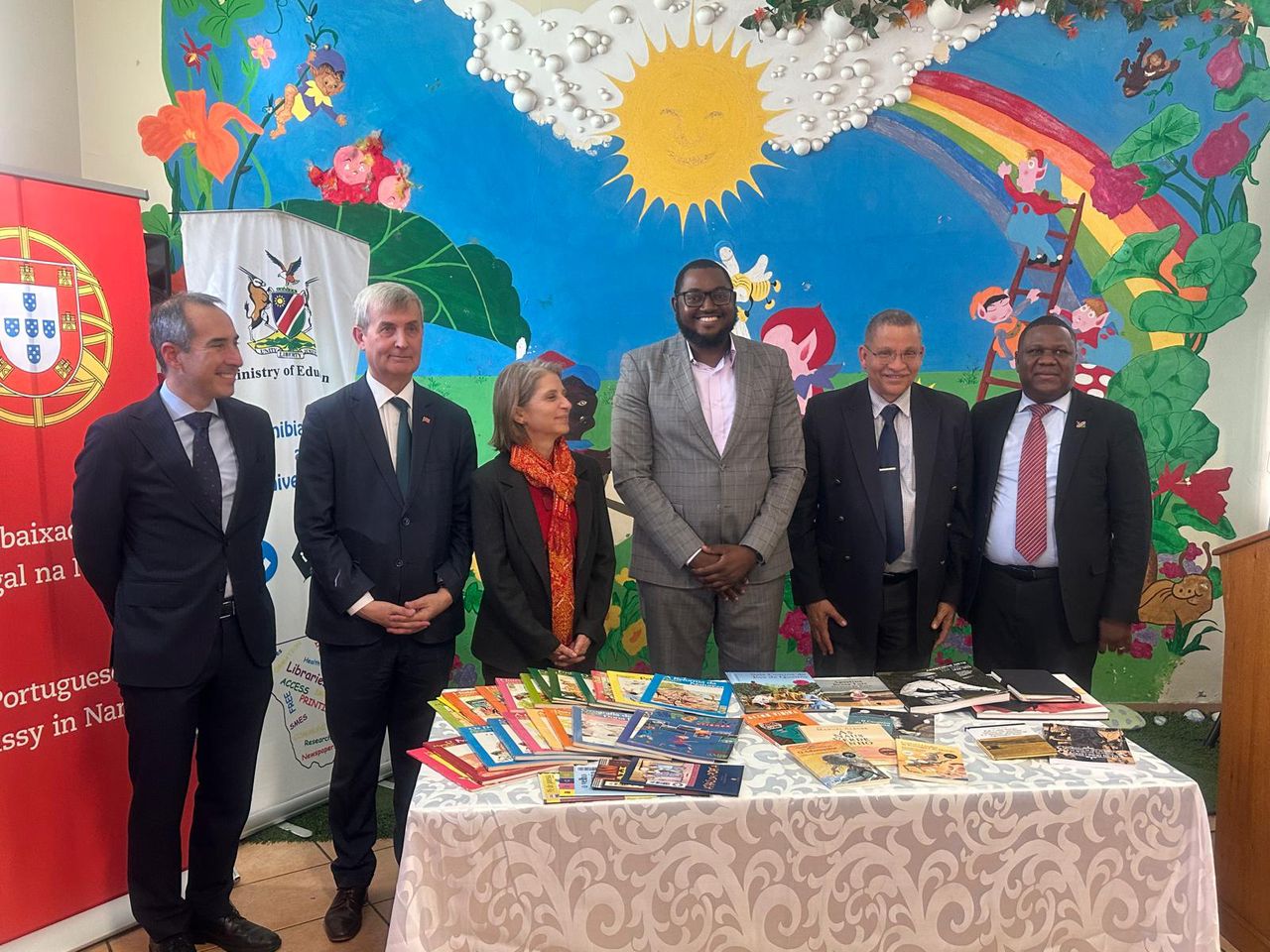A NAMIBIAN company accused of selling fake AIDS medicines in West Africa has no licence to make the anti-retroviral drugs.
The Ministry of Health and Social Services said yesterday that preliminary investigations had disclosed that Selchi Pharmaceuticals was not even registered as a drug manufacturer in Namibia. The Ministry’s probe followed a World Health Organisation (WHO) warning last year that Selchi Pharmaceuticals had exported a “counterfeit triple anti-retroviral combination” drug known as Ginovir 3D to Cote d’Ivoire (Ivory Coast).A spokesperson for Selchi Garments – the only Selchi business firm listed in the Windhoek telephone directory – yesterday denied that her company had sold anti-retrovirals to the West African nation or anywhere else, but did say it had sought registration as a drugs manufacturer.The WHO said a French laboratory had analysed Ginovir 3D and found no definite trace of any of the three elements listed on the label.On the website of a Singaporean company that makes the drug, it states that a Ginovir 3D capsule contains 200 mg of zidovudine, 150 mg of lamivudine and 40mg of indinavir.But laboratory tests did not find any lamivudine or indinavir.Instead, each capsule contained stavudine “in addition to a non-identified substance”.In a special alert posted on the internet, the WHO said that Selchi Pharmaceuticals, which it described as a company with a Windhoek mailbox, manufactured Ginovir 3D.But one of Selchi’s business partners, a woman who identified herself only as Selma, said a plan last year to make and distribute the anti-retrovirals never got off the ground after the Ministry of Health refused Selchi a licence because there was no pharmacist in the company.Permanent Secretary Kalumbi Shangula said on Monday: “We identified the place but it’s so strange that the name is linked to fishing, not pharmaceuticals”.(This is thought to be an allusion to another member of the Selchi group of companies.) Selma said the only drugs Selchi had possessed were the samples sent to the Health Ministry and the WHO.”When they said it was counterfeit and refused to register us we dropped it altogether.We just got samples, but not for distribution.Why would we distribute to other countries while we have people who need that tablet?” said Selma.Ginovir is legally manufactured by GB King-Repa Trading, part of the K&K group of companies operating in the People’s Republic of China, Singapore and Taiwan.They sell other anti-AIDS drugs under the brand names Stavir, Laxivir, Lamivir and Indivir.Selma said Selchi had responded to a request by GB King-Repa’s Singapore office for a Namibian distributor.Selma said she did not know how AIDS drugs with labels identifying her company as the manufacturer ended up in Ivory Coast.It is unclear whether Ginovir is still being sold in West Africa.Shangula said the AIDS medicine had not been brought into Namibia, but he was awaiting the final report of an investigation of the whole matter.”What we want is the person dealing with pharmaceuticals, not the fishing business,” said Shangula.A WHO representative in Windhoek, Dr Desta Tiruneh, said the UN agency was still waiting to hear from the Health Ministry.”As the WHO, we have no authority.We just pass information to Government to investigate” and take steps, he said.The Ministry’s probe followed a World Health Organisation (WHO) warning last year that Selchi Pharmaceuticals had exported a “counterfeit triple anti-retroviral combination” drug known as Ginovir 3D to Cote d’Ivoire (Ivory Coast). A spokesperson for Selchi Garments – the only Selchi business firm listed in the Windhoek telephone directory – yesterday denied that her company had sold anti-retrovirals to the West African nation or anywhere else, but did say it had sought registration as a drugs manufacturer. The WHO said a French laboratory had analysed Ginovir 3D and found no definite trace of any of the three elements listed on the label. On the website of a Singaporean company that makes the drug, it states that a Ginovir 3D capsule contains 200 mg of zidovudine, 150 mg of lamivudine and 40mg of indinavir. But laboratory tests did not find any lamivudine or indinavir. Instead, each capsule contained stavudine “in addition to a non-identified substance”. In a special alert posted on the internet, the WHO said that Selchi Pharmaceuticals, which it described as a company with a Windhoek mailbox, manufactured Ginovir 3D. But one of Selchi’s business partners, a woman who identified herself only as Selma, said a plan last year to make and distribute the anti-retrovirals never got off the ground after the Ministry of Health refused Selchi a licence because there was no pharmacist in the company. Permanent Secretary Kalumbi Shangula said on Monday: “We identified the place but it’s so strange that the name is linked to fishing, not pharmaceuticals”. (This is thought to be an allusion to another member of the Selchi group of companies.) Selma said the only drugs Selchi had possessed were the samples sent to the Health Ministry and the WHO. “When they said it was counterfeit and refused to register us we dropped it altogether. We just got samples, but not for distribution. Why would we distribute to other countries while we have people who need that tablet?” said Selma. Ginovir is legally manufactured by GB King-Repa Trading, part of the K&K group of companies operating in the People’s Republic of China, Singapore and Taiwan. They sell other anti-AIDS drugs under the brand names Stavir, Laxivir, Lamivir and Indivir. Selma said Selchi had responded to a request by GB King-Repa’s Singapore office for a Namibian distributor. Selma said she did not know how AIDS drugs with labels identifying her company as the manufacturer ended up in Ivory Coast. It is unclear whether Ginovir is still being sold in West Africa. Shangula said the AIDS medicine had not been brought into Namibia, but he was awaiting the final report of an investigation of the whole matter. “What we want is the person dealing with pharmaceuticals, not the fishing business,” said Shangula. A WHO representative in Windhoek, Dr Desta Tiruneh, said the UN agency was still waiting to hear from the Health Ministry. “As the WHO, we have no authority. We just pass information to Government to investigate” and take steps, he said.
Stay informed with The Namibian – your source for credible journalism. Get in-depth reporting and opinions for
only N$85 a month. Invest in journalism, invest in democracy –
Subscribe Now!










